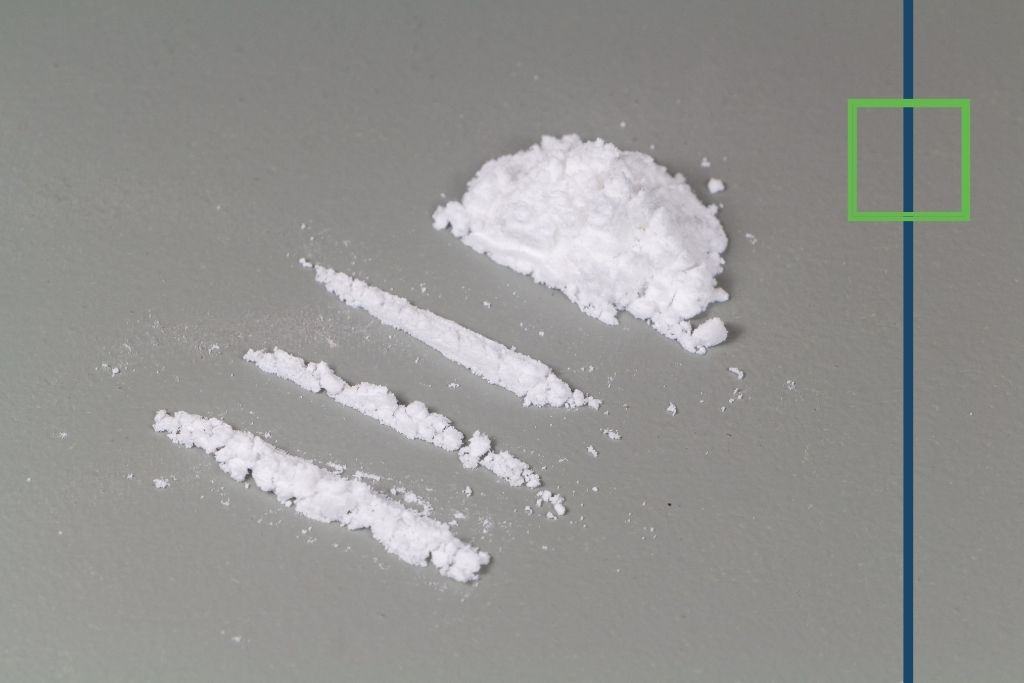The Link Between Cocaine and Depression
It might seem natural for someone who is depressed to abuse cocaine. The stimulant drug counteracts many of the most painful and debilitating symptoms of depression by boosting mood, energy, and confidence. However, these short-lived effects leave people stuck in a cycle of repeated use that can quickly progress to addiction.
Even when people who have depression and use cocaine do not develop a substance use disorder, they ultimately worsen their depression. Chronic cocaine abuse changes brain chemistry in a way that deepens and prolongs dysphoria and makes it harder to feel happy. People who use cocaine to feel better prevent themselves from achieving long-term recovery from depression symptoms.
Cocaine Effects
Cocaine is a central nervous system stimulant that affects the brain by stimulating high levels of dopamine, a brain chemical associated with pleasure and reward. Over time, Cocaine negatively affects every part of the body with the potential for severe long-term effects. It can cause changes to genetics in brain cells, nerve cells, and proteins, among other permanent effects.
Symptoms and Effects of using cocaine include:
- Talkativeness
- Excitement
- Alertness
- Anxiety
- Overconfidence
How people use cocaine also alters the potency and duration of the effects. The effects of snorting it are short-lived, lasting approximately 15-30 minutes. Smoking or injecting cocaine is more intense but lasts for an even shorter period, about 5 to 10 minutes. Most cocaine users will frequently dose to maintain the desired effects. Injecting the drug poses a higher risk of overdose than snorting.
Cocaine abuse is hazardous because continued use can cause strain on the heart. The most common cause of death of infrequent cocaine users is stroke or cardiac arrest. If you or someone you know is abusing cocaine, get help now.
Skip to:
- Cocaine Effects on the Brain
- Can Cocaine Cause Depression
- Is Cocaine a Depressant?
- Cocaine Depression Next Day
- Cocaine Withdrawal Depression
- Cocaine Treatment
Learn More:
- Cocaine Addiction
- Cocaine Effects On The Brain
- Cocaine Myths
- Signs of Cocaine Overdose
- Interesting Facts About Cocaine
- What Does Cocaine Smell Like?
- Cocaine and Alcohol
- Sex and Cocaine
- Cocaine and Viagra
- Cocaine and Erectile Dysfunction
- Cocaine Perforated Septum
- Cocaine and Ketamine
- Steroids and Cocaine
- Ritalin vs. Cocaine
- DXM and Cocaine
- Cocaine And The Heart
- Is Cocaine A Blood Thinner?
- Slang Names For Cocaine
- How Long Cocaine Stays in System?
- Is Cocaine a Stimulant or Depressant?
- Pink Cocaine
- Is There A Difference Between Cocaine And Crack Cocaine?
- Cocaine Detox

Get Your Life Back
Find Hope & Recovery. Get Safe Comfortable Detox, Addiction Rehab & Dual Diagnosis High-Quality Care.
Hotline(844) 597-1011Cocaine Effects on the Brain
Even when Cocaine is a highly addictive drug, one of its main issues is that it may be hard to recognize an addiction to it. For example, craving cocaine, even if the use or need appears every few days, and ignoring the consequences that come with it are signs of an addiction.
The psychological addiction is often the hardest part to overcome, although there are undeniable physical symptoms of addiction as well. Someone who uses cocaine frequently will develop a dependence on it, meaning they need to have it to feel normal. Once dependence has developed, a tolerance will develop and withdrawal symptoms will occur when stopping use. Once someone becomes addicted to cocaine, it can be very hard to stop. This is because cocaine abnormally increases the level of dopamine in the brain, eventually reprogramming the brain reward system.

Is there a specific time frame that determines if you are going to become addicted to cocaine or not? How long does it take? It can depend on certain factors, such as how often you use cocaine and how much drug you use on each occasion. Getting addicted to cocaine depends on various factors, but most people who use the drug heavily become dependent within a few weeks of regular abuse.
Various factors can increase your likelihood of experiencing substance misuse issues like medical history, genetics, mental health, environment, and method of use.
Psychological Effects of Cocaine
Frequent use of cocaine can cause you to develop a higher tolerance to the drug. A high tolerance means you need more of the drug to feel its effects. This may lead to more significant amounts of it, which can impact your mental and physical health. Psychological effects of cocaine include:
- Paranoia
- Panic
- Hallucinations
- Aggression
- Irritability
- Anxiety
- Depression
- Impaired judgment
- Repetitive or abnormal behaviors
Get Help. Get Better. Get Your Life Back.
Searching for Accredited Drug and Alcohol Rehab Centers Near You?
Even if you have failed previously and relapsed, or are in the middle of a difficult crisis, we stand ready to support you. Our trusted behavioral health specialists will not give up on you. When you feel ready or just want someone to speak to about therapy alternatives to change your life call us. Even if we cannot assist you, we will lead you to wherever you can get support. There is no obligation. Call our hotline today.
(844) 597-1011Can Cocaine Cause Depression?

Many jokes about cocaine in popular culture emphasize how the drug can make people feel invincible. Unfortunately, fewer people are aware of the lows that inevitably follow these highs. For people who use cocaine, depression after use is common, even when they do not use it regularly.
The reason cocaine and depression have this relationship relates to how the brain works. As a stimulant, cocaine activates the sympathetic nervous system, which governs the fight-or-flight response. The state of intensified alertness and surging energy triggered by the release of norepinephrine can’t be sustained for long and will be followed by a crash.
Most of the time, this shift isn’t an issue because people feel relieved to have escaped a threat or overcome a stressful challenge and enjoy resting afterward. However, when substances trigger these changes, there is nothing to feel relieved about when their effects wear off. The disappointment people feel as the drug rapidly wears off is one of the ways cocaine can cause depression, especially when people experience it repeatedly.
The primary way cocaine causes depression is by directly changing the brain. In addition to norepinephrine, cocaine also increases serotonin and dopamine levels. People feel euphoric when the brain is flooded with higher levels of these chemicals than usual. Afterward, the brain enters a recovery period during which these now-depleted neurotransmitters return to normal levels. During this phase, people feel worse than they did before.
Many people are familiar with these short-term effects but aren’t sure about the long-term consequences of cocaine use. Does cocaine cause depression that lasts long enough to require treatment? It can, especially if people progress to cocaine dependence and start experiencing cocaine withdrawal symptoms.
Is Cocaine a Depressant?
If you find out that someone you love is abusing cocaine, it is normal to ask, is cocaine a stimulant or depressant? The basic answer is that cocaine is a stimulant. This means that using cocaine speeds up or stimulates the systems and functions of the body. This very powerful stimulant is derived from the coca plant. When it is used, it speeds up the central nervous system. This is why cocaine is often called a party drug. It makes people feel energetic and euphoric. Cocaine is a Schedule II drug that has a high potential for abuse.
Stimulant drugs can increase alertness or concentration in the short term. They can also inhibit tiredness, which makes it challenging to rest or sleep under the influence of cocaine. Stimulants can speed up heart rate and increase blood pressure. This can cause a lot of problems, particularly for anyone with cardiac issues to begin with.
First-class Facilities & Amenities
World-class High-Quality Addiction & Mental Health Rehabilitation Treatment
Rehab Centers TourRenowned Addiction Centers. Serene Private Facilities. Inpatient rehab programs vary.
Addiction Helpline(844) 597-1011Proven recovery success experience, backed by a Team w/ History of:
15+
Years of Unified Experience
100s
5-Star Reviews Across Our Centers
10K
Recovery Success Stories Across Our Network
- Low Patient to Therapist Ratio
- Onsite Medical Detox Center
- Comprehensive Dual-Diagnosis Treatment
- Complimentary Family & Alumni Programs
- Coaching, Recovery & Personal Development Events
Cocaine Depression Next Day
People who abuse cocaine risk experiencing a comedown as the drug wears off. A cocaine comedown may involve intense effects opposite to those the drug causes during the euphoric phase. Comedowns are similar to alcohol hangovers for many people, but some symptoms may be very intense and different from alcohol hangovers.
People who experience serious symptoms from abusing cocaine are at greater risk of bingeing the drug because they may take a lot more of it to offset the comedown symptoms.
Cocaine use is accompanied by an increase in dopamine activity, which leads to the euphoric effects often reported. As the drug wears off, there is relatively less dopamine active in the brain, which can lead to the opposite of many of these effects: depression, physical slowness or sluggishness, foggy thinking, exhaustion but trouble sleeping, aches and pains, and more.

Cocaine Withdrawal Depression
For people who use cocaine, depression the next day can become part of a familiar and worrisome pattern. This post-cocaine depression is more pronounced for people dependent on cocaine, compared to people who are not reliant on it.
According to the Diagnostic and Statistical Manual of Mental Disorders, substance dependence involves the presence of three or more of the following symptoms:
- Tolerance or needing to use more of the substance to achieve the same effect
- Withdrawal symptoms, or unpleasant physical or mental effects that arise after the use
- Taking a substance in larger amounts or over a longer period than intended
- Wanting or making unsuccessful efforts to control or reduce substance use
- Spending a significant amount of time obtaining and using a substance and recovering from its effects
- Giving up important social, work-related, or recreational activities because of substance use
- Continuing to use a substance despite knowing it causes or exacerbates a psychological problem
World-class, Accredited, 5-Star Reviewed, Effective Addiction & Mental Health Programs. Complete Behavioral Health Inpatient Rehab, Detox plus Co-occuring Disorders Therapy.
CALL(844) 597-1011End the Addiction Pain. End the Emotional Rollercoaster. Get Your Life Back. Start Drug, Alcohol & Dual Diagnosis Mental Health Treatment Now. Get Free No-obligation Guidance by Substance Abuse Specialists Who Understand Addiction & Mental Health Recovery & Know How to Help.
In other words, the clinical definition of drug dependence does not require people to have medical withdrawal symptoms. It merely involves people continuing to use the drugs despite adverse outcomes.
While cocaine does not cause physical withdrawal symptoms as alcohol and opiates do, it can cause lasting and recurring psychological withdrawal effects, including:
- Fatigue
- Irritability
- Difficulty concentrating
- Increased appetite
One of the most pronounced and typical effects of cocaine withdrawal is depression. This mental illness may arise because long-term cocaine use causes key neurotransmitters to dwindle to chronically low levels, because using cocaine damages cells in the brain’s pleasure center. Cocaine abuse causes brain cells to “eat themselves.” These changes to the brain can cause people to develop chronic depression or have an acute depressive episode.
The good news is that sustained recovery from cocaine dependence allows the brain to heal and recover its previous level of functioning.
The Co-occurring Disorders
When a person is diagnosed with both a mental illness and a substance use disorder, they are said to have co-occurring disorders. Though the disorders can exist separately from one another, when they coexist in the same person, they usually cause the symptoms of both disorders to be amplified. It is common for a person with co-occurring disorders to have more severe symptoms than a person with only one of the disorders.
Co-occurring disorders are defined by the dual diagnosis of a mental health disorder and a substance use disorder in the same person. These diagnoses can be made at the same time, or they can be made one after the other, but the two disorders occur simultaneously in the same person.
Cocaine Treatment
A co-occurring disorder is defined by the dual diagnosis of a mental health disorder and a substance use disorder in the same person. We Level Up rehab treatment & detox center can provide you, or someone you love, treatment for co-ourring disorders with professional and safe care. Feel free to call us to speak with one of our counselors. We can inform you about this condition by giving you relevant information. Our specialists know what you are going through. Please know that each call is private and confidential.
Experience Transformative Recovery at We Level Up Treatment Centers.
See our authentic success stories. Get inspired. Get the help you deserve.
Start a New Life
Begin with a free call to an addiction & behavioral health treatment advisor. Learn more about our dual-diagnosis programs. The We Level Up Treatment Center Network delivers recovery programs that vary by each treatment facility. Call to learn more.
- Personalized Care
- Caring Accountable Staff
- World-class Amenities
- Licensed & Accredited
- Renowned w/ 100s 5-Star Reviews
We’ll Call You




